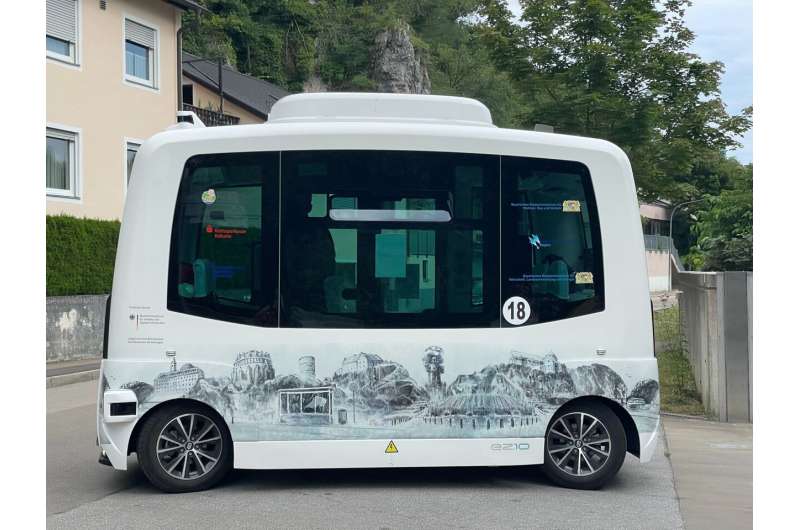This article has been reviewed according to Science X's editorial process and policies. Editors have highlighted the following attributes while ensuring the content's credibility:
fact-checked
trusted source
proofread
Experts help cities navigate the rise of autonomous vehicles

University of Oregon experts are bringing much-needed help to U.S. cities grappling with the testing or rollout of autonomous vehicles on their roads.
"Autonomous Vehicles: A Guide for Cities"
is the first comprehensive guide written for
With autonomous vehicle technology progressing so quickly, many cities are struggling to manage pilot programs without adequate knowledge, planning or resources.
"This guide shares the wisdom and experience of cities, states, transit agencies, private sector companies and community stakeholders that are in the thick of AV piloting, testing and deployment," said Nico Larco, a UO professor of architecture and urban design in the College of Design and director of Urbanism Next.
"Although the guide was written for city staff and leaders," he said, "it's for anyone who wants to learn more about the introduction of autonomous vehicles in the U.S. and how cities can work with AV firms to advance the technology while also furthering community goals such as road safety, environmental sustainability, and equity and affordability in transportation."
Urbanism Next is a program of the UO's Sustainable Cities Institute, creator of the Sustainable City Year Program, which pairs faculty and students with local cities on sustainability projects. It has become a model for universities around the country.
The new guide for cities brings together more than four years of insights from the James S. and John L. Knight Foundation's Autonomous Vehicle Initiative, as well as learnings from organizations around the country.
Through the initiative, Cityfi and Urbanism Next met and collaborated with local governments in San Jose, California; Detroit; Pittsburgh; and Miami-Dade County in Florida as they experimented with publicly managed AV pilots and demonstrations from 2018 to 2024. The report also incorporates input from various agencies and organizations in San Francisco, Washington, D.C., New York City, Seattle, Memphis, Texas, Boston and Los Angeles.
The engaging, easy-to read guide begins with a color-coded table of contents, with sections tailored to whatever stage a city is in, from just learning about AVs, to preparing for a pilot program or managing deployment.
Each section offers insights, including these:
- While AVs can serve some city goals, they can threaten others. Cities should reflect to ensure they are pursing technology to support community goals and not pursuing technology for technology's sake.
- Including key stakeholders early is essential in helping build trust and ensuring their views are represented at the outset of conversations and not as afterthoughts.
- Since 2017, states have passed laws governing AVs, preventing most cities from limiting or regulating them. But cities can still have a say about AVs on public streets because most cities control the curb. The curb is the point of transaction for most robotaxis and other services picking up or dropping off passengers or goods.
More information: Autonomous Vehicles: A Guide for Cities. www.urbanismnext.org/resources … s-a-guide-for-cities





















